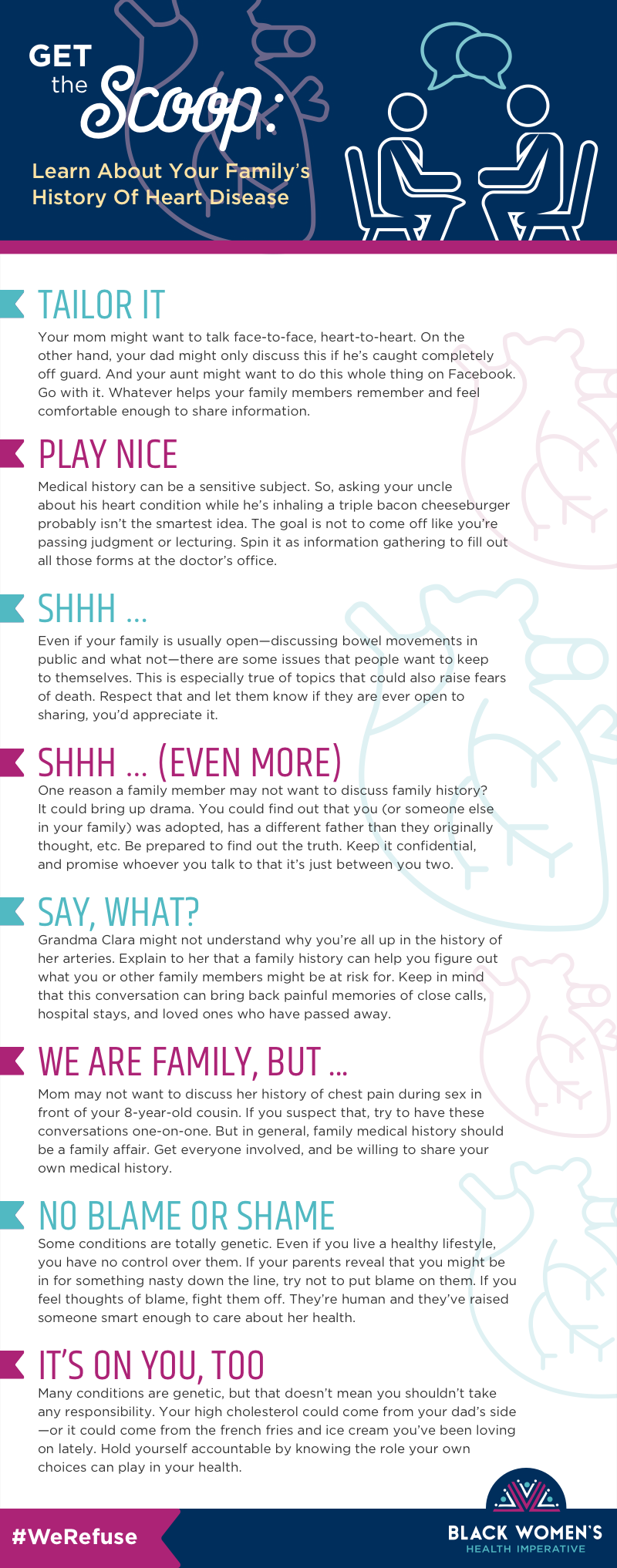What do your almond-shaped eyes and beautiful skin have in common with heart disease? They can all run in the family.
The keyword here is “can.” If you have a family history of heart disease, you aren’t guaranteed to develop it, but it can mean you’re at a higher risk.
It can work the other way, too. Just like you may look better than anyone else in your family (admit it, you’ve thought about it), you may be diagnosed with a medical condition that no one in the family has.
Finding out your family medical history may take some research, but it’s an important project. A family history can pinpoint genetic conditions (ones that are passed down from parent to child), as well as environmental and lifestyle patterns that put you and your family at risk.
Learning about family history is especially important if someone in your family has heart disease. Once you know you have a higher risk of developing it, you can pass on the fries and dust off that gym membership. (That’s probably a good idea, anyway.)
If your family is perfectly willing to share, then congrats—your job is easy. But sometimes, conversations about health, medicine, and family history can come with a little bit of drama.
Here’s how you can get the scoop on the family history of heart disease without causing any fights.

Now that you know how to ask, there are no more excuses. After you talk to your people, talk to your doctor about how you can prevent heart disease. And make sure your friends know to get theirs, too.
Special tip: Use this tool from the Surgeon General to keep track of your family’s medical history.


